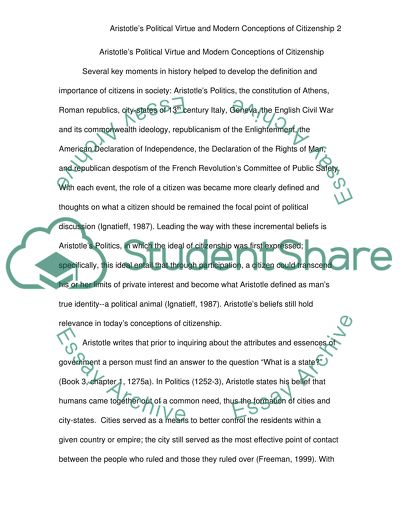Cite this document
(“Aristotles Political Virtue and Modern Conceptions of Citizenship Essay”, n.d.)
Retrieved de https://studentshare.org/politics/1523395-aristotles-political-virtue-and-modern-conceptions-of-citizenship
Retrieved de https://studentshare.org/politics/1523395-aristotles-political-virtue-and-modern-conceptions-of-citizenship
(Aristotles Political Virtue and Modern Conceptions of Citizenship Essay)
https://studentshare.org/politics/1523395-aristotles-political-virtue-and-modern-conceptions-of-citizenship.
https://studentshare.org/politics/1523395-aristotles-political-virtue-and-modern-conceptions-of-citizenship.
“Aristotles Political Virtue and Modern Conceptions of Citizenship Essay”, n.d. https://studentshare.org/politics/1523395-aristotles-political-virtue-and-modern-conceptions-of-citizenship.


